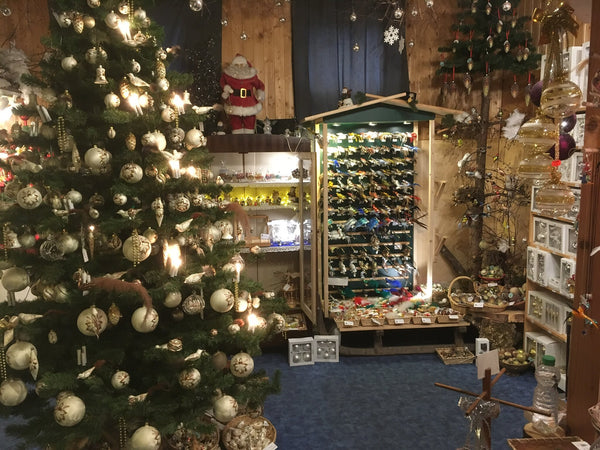
Glas-Bartholmes - Glasmalerei “Thüringen Weihnacht”


The glass christmas ornaments of my grandfather and great-grandfather is what determined the profile of my company. The handcrafted craftsmanship of our family business is documented in our elaborate handcrafted ornaments, which we distinguish by a great diversity and colorful splendor. A wide selection of old, traditional forms, which my grandfather produced, are at our disposal. In the meantime, we can let the experience of 5 generations flow into our small treasures.
Since 1848 Lauscha has been the birthplace of the family of glass Christmas decorations. Until this time, it was tradition to decorate the tree with apples and walnuts. According to one legend, the idea of creating colored glass balls made of glass as a Christmas decorations comes from a poor Lauscha glassblower, who in 1847 could not afford the expensive walnuts and apples. Even today, the Thuringian Forest and especially the region around Lauscha is one of the most important glass regions in Central Europe.
In the production of Christmas decorations made of glass, the glass blowers initially operated with rape oil and paraffin. However, only a very hot gas flame with the supply of air or oxygen allows the blowing of large, thin-walled Christmas tree balls. Today the burners are operated with natural gas or propane gas. The craftsmanship with which we manufacture our mouth-blown Christmas decorations is still the same.
With the registered brand name Lauschaer Glaskunst ®, an association of glassblowers and glassmakers from the region around Lauscha have made it their task to preserve the traditional production method of glassware such as Christmas decorations. We are also members of this association and are therefore allowed to market our Christmas decorations under the name of Lauscha glass art. By purchasing a product with this mark, you have the certainty to have acquired a product that has been manufactured in the region around Lauscha, according to old tradition.
